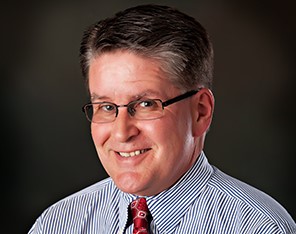1.5 CE Credits
 Presented by:
Presented by:
Paul M. Kaufmann, J.D., Ph.D., ABPP
University Compliance Officer, University of Arizona, Office of Provost, Tucson, AZ
Chair, President’s Strategic Enterprise Risk Intelligence and Compliance Committees
Clinical neuropsychologists accept more forensic referrals now and spend more time in forensic consulting than ever before. Recent surveys show weekly hours devoted to forensic consulting increased 97% in the past decade. When assuming forensic roles, psychologists have an ethical obligation to be reasonably familiar with the rules governing those roles. This webinar provides an orientation to the legal profession and an introduction to legal reasoning. Participants will learn about rules of evidence and key court decisions that govern neuropsychologist experts. Case experience and materials are used to show how expert opinions must be: 1) based on sufficient facts or data; 2) the product of reliable principles and methods; and 3) appropriately applied to the facts of the case. This webinar illustrates principles of effective attorney-neuropsychologist interactions and increases courtroom familiarity, concluding with suggestions about how to manage risks associated with a forensic consulting practice.
After the webinar, participants will be able to:
1. Describe the basic framework for advocacy, candor, and reasoning in the legal profession.
2. Develop and implement effective neuropsychologist-attorney interactions.
3. Discuss and apply rules of evidence and key court cases to enhance forensic reports, formulations, and expert testimony.
4. Identify and manage ethical dilemmas, legal requirements, and practice risks associated with forensic consulting.
Target Audience: Early- to late-career clinical neuropsychologists and clinical psychologists who are interested in beginning or expanding a forensic consulting practice.
Instructional Level: Intermediate, although the legal concepts and rules are introductory and intended for an audience that is not familiar with the legal profession.
About Paul M. Kaufmann, J.D., Ph.D., ABPP
Dr. Kaufmann is a licensed clinical psychologist, attorney, and board-certified clinical neuropsychologist, who operates a multi-state private practice in forensic consultation emphasizing pediatric neuropsychology. He completed his Doctoral Degree at the University of Houston in 1988 with Dr. Jack Fletcher as his chair. In 1990, he completed a two year Post-Doctoral Fellowship at the Child Study Center - Yale University School of Medicine. Throughout his training and professional career as a neuropsychologist, Dr. Kaufmann has consulted on over one hundred legal cases. He is an active consultant in administrative, criminal, and civil litigation. During his career, he has held chief executive positions in both the public and private sector. He has sixteen years of faculty experience at major medical schools in KY, IL and AZ. Dr. Kaufmann was the founding Director of the University of Arizona Pediatric Neuropsychology Clinic in the Department of Pediatrics at the University Medical Center. From 1998 – 2002, Dr. Kaufmann was the Hospital Administrator at the Clyde L. Choate Mental Health and Developmental Center, while also a faculty member at Southern Illinois University School of Medicine. In 2005, Dr. Kaufmann completed his law degree at Southern Illinois University School of Law. He began his law career on the faculty of the University of Nebraska Law – Psychology program, but quickly transitioned to the full time practice of law. As a health law attorney, Dr. Kaufmann represented the Nebraska Department of Health and Human Services Divisions of Behavioral Health, Public Health, Developmental Disabilities, and Veterans Homes in administrative hearings, trials, and appeals, as a Special Assistant Attorney General of Nebraska. He has argued cases before appellate courts, including a case of first impression on the scope of HIPAA before the Nebraska Supreme Court. He also served as an attorney for the University of Oregon General Counsel. Dr. Kaufmann maintains active scholarship in research, publication, and consultation on legal problems confronting neuropsychologists. He has published numerous book chapters, peer-reviewed scientific research articles, and legal commentaries, most recently addressing the use of neuropsychological evidence in court and the scope of neuropsychologist expertise. In 2013, Dr. Kaufmann completed a term as Member-At-Large of the American Academy of Clinical Neuropsychology Board of Directors and he has subsequently served as pro bono Counsel for NFL concussion litigation. Currently, Dr. Kaufmann serves as the University Compliance Officer at the University of Arizona.
NAN members login and non-members create an account to:
